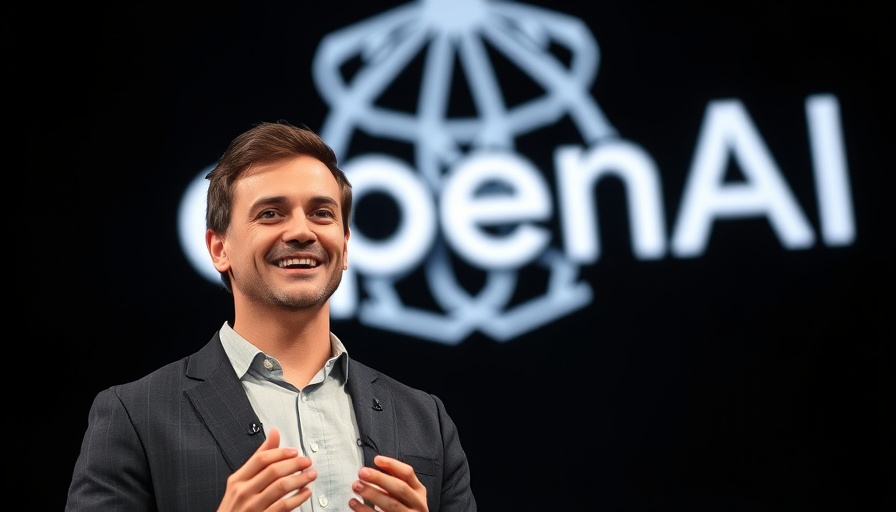
The Growing Tensions in the OpenAI-Microsoft Partnership
The recent buzz surrounding the OpenAI-Microsoft relationship indicates that tensions may be escalating, potentially impacting their collaborative efforts in the digital marketing realm. Both companies have played pivotal roles in the AI sector, and their ongoing partnership has sparked interest among professionals, business owners, and marketers seeking to leverage these technologies for growth.
Why This Matters for Marketers
As marketing strategies become increasingly dependent on AI and innovative technologies, understanding the dynamics between these two giants becomes crucial. Their partnership has historically driven developments in AI in digital marketing, creating tools and applications that enhance content marketing strategies and SEO updates. Thus, any split or changes to their alliance could lead to significant shifts in the market, especially for those utilizing these tools for conversion rate optimization and customer engagement strategies.
What’s Behind the Cracks?
Reports suggest that differing objectives and visions may lead to the widening cracks in the partnership. OpenAI is focused on reinforcing its role as an independent research organization, while Microsoft is eager to embed AI more deeply into its productivity and cloud offerings. This divergence reflects a larger trend within the tech industry: the battle between maintaining creative freedom and pursuing commercial ambitions.
The Ripple Effect on Digital Marketing
For marketers, any disruption in OpenAI's and Microsoft's synergy could translate to challenges in accessing advanced AI tools. Many marketers rely on innovations from these companies to implement effective SEO strategies, develop content distribution strategies, and enhance overall marketing automation. As AI integration takes front-stage in marketing innovations, the ramifications of this split could lead to a reevaluation of digital marketing trends.
Real-World Impact: A Case Study
Consider a hypothetical scenario: a marketing company currently utilizing Microsoft’s platform to enhance OpenAI's chatbot features for client engagement. If OpenAI decides to pivot its focus away from commercial collaborations with Microsoft, this company may find itself scrambling to adjust its marketing strategy, possibly having to seek new providers for similar AI functionalities.
Future Implications: What to Watch For
The developments in the OpenAI-Microsoft link serve as a preview of how shifting priorities can reshape the digital marketing landscape. Marketers need to stay informed on potential alternatives and new partnerships that could arise as these giants reassess their strategies. Furthermore, it signals the importance of adaptability in marketing endeavors moving forward, especially in the context of AI-driven marketing and data-driven marketing.
Strategies for Marketers Amidst Shifts
As the landscape evolves, marketers must focus on several strategies:
- Invest In Diversification: Build a portfolio of marketing tools that aren’t solely dependent on one provider.
- Embrace Continuous Learning: Stay updated on the latest digital marketing tools and evolving tech trends.
- Focus on User Experience: Enhancing the user journey should remain a priority, regardless of external shifts.
Conclusion: Navigating Change for Growth
The potential widening of the cracks in the OpenAI-Microsoft partnership is more than a corporate issue; it is a bellwether for the marketing industry. Marketers are encouraged to view this as a pivotal moment to reassess their tools, strategies, and adaptability amidst uncertainty. As the digital landscape continues to shift, staying informed and agile will be paramount for success.
If you're looking for ways to optimize your approach to online advertising trends, explore our range of resources. Equip yourself with the knowledge to stay ahead in a rapidly evolving digital marketplace, thereby ensuring resilience in your marketing strategies.
 Add Row
Add Row  Add
Add 




Write A Comment